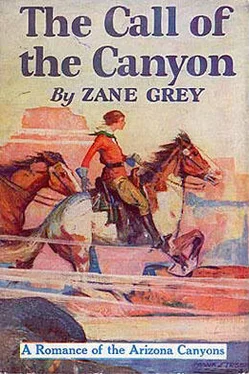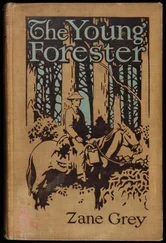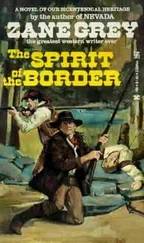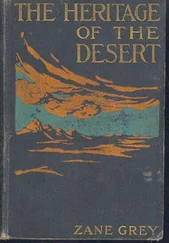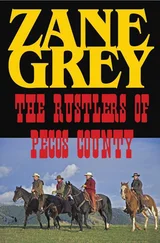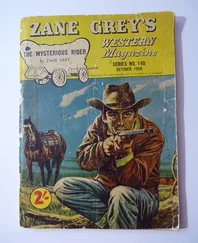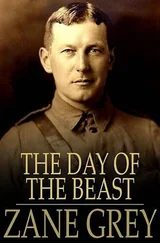Zane Grey - The Call of the Canyon
Здесь есть возможность читать онлайн «Zane Grey - The Call of the Canyon» весь текст электронной книги совершенно бесплатно (целиком полную версию без сокращений). В некоторых случаях можно слушать аудио, скачать через торрент в формате fb2 и присутствует краткое содержание. Жанр: Старинная литература, на английском языке. Описание произведения, (предисловие) а так же отзывы посетителей доступны на портале библиотеки ЛибКат.
- Название:The Call of the Canyon
- Автор:
- Жанр:
- Год:неизвестен
- ISBN:нет данных
- Рейтинг книги:5 / 5. Голосов: 1
-
Избранное:Добавить в избранное
- Отзывы:
-
Ваша оценка:
- 100
- 1
- 2
- 3
- 4
- 5
The Call of the Canyon: краткое содержание, описание и аннотация
Предлагаем к чтению аннотацию, описание, краткое содержание или предисловие (зависит от того, что написал сам автор книги «The Call of the Canyon»). Если вы не нашли необходимую информацию о книге — напишите в комментариях, мы постараемся отыскать её.
The Call of the Canyon — читать онлайн бесплатно полную книгу (весь текст) целиком
Ниже представлен текст книги, разбитый по страницам. Система сохранения места последней прочитанной страницы, позволяет с удобством читать онлайн бесплатно книгу «The Call of the Canyon», без необходимости каждый раз заново искать на чём Вы остановились. Поставьте закладку, и сможете в любой момент перейти на страницу, на которой закончили чтение.
Интервал:
Закладка:
"How could you see when you stayed comfortably at home?" retorted Carley.
"All I could see was women falling into soldiers' arms," he said, sullenly.
"Certainly. Could an American girl desire any greater happiness–or opportunity to prove her gratitude?" flashed Carley, with proud uplift of head.
"It didn't look like gratitude to me," returned Morrison.
"Well, it was gratitude," declared Carley, ringingly. "If women of America did throw themselves at soldiers it was not owing to the moral lapse of the day. It was woman's instinct to save the race! Always, in every war, women have sacrificed themselves to the future. Not vile, but noble! ... You insult both soldiers and women, Mr. Morrison. I wonder–did any American girls throw themselves at you?"
Morrison turned a dead white, and his mouth twisted to a distorted checking of speech, disagreeable to see.
"No, you were a slacker," went on Carley, with scathing scorn. "You let the other men go fight for American girls. Do you imagine one of them will ever marry you? ... All your life, Mr. Morrison, you will be a marked man–outside the pale of friendship with real American men and the respect of real American girls."
Morrison leaped up, almost knocking the table over, and he glared at Carley as he gathered up his hat and cane. She turned her back upon him. From that moment he ceased to exist for Carley. She never spoke to him again.
Next day Carley called upon her dearest friend, whom she had not seen for some time.
"Carley dear, you don't look so very well," said Eleanor, after greetings had been exchanged.
"Oh, what does it matter how I look?" queried Carley, impatiently.
"You were so wonderful when you got home from Arizona."
"If I was wonderful and am now commonplace you can thank your old New York for it."
"Carley, don't you care for New York any more?" asked Eleanor.
"Oh, New York is all right, I suppose. It's I who am wrong."
"My dear, you puzzle me these days. You've changed. I'm sorry. I'm afraid you're unhappy."
"Me? Oh, impossible! I'm in a seventh heaven," replied Carley, with a hard little laugh. "What 're you doing this afternoon? Let's go out–riding–or somewhere."
"I'm expecting the dressmaker."
"Where are you going to-night?"
"Dinner and theater. It's a party, or I'd ask you."
"What did you do yesterday and the day before, and the days before that?"
Eleanor laughed indulgently, and acquainted Carley with a record of her social wanderings during the last few days.
"The same old things-over and over again! Eleanor don't you get sick of it?" queried Carley.
"Oh yes, to tell the truth," returned Eleanor, thoughtfully. "But there's nothing else to do."
"Eleanor, I'm no better than you," said Carley, with disdain. "I'm as useless and idle. But I'm beginning to see myself–and you–and all this rotten crowd of ours. We're no good. But you're married, Eleanor. You're settled in life. You ought to do something. I'm single and at loose ends. Oh, I'm in revolt! ... Think, Eleanor, just think. Your husband works hard to keep you in this expensive apartment. You have a car. He dresses you in silks and satins. You wear diamonds. You eat your breakfast in bed. You loll around in a pink dressing gown all morning. You dress for lunch or tea. You ride or golf or worse than waste your time on some lounge lizard, dancing till time to come home to dress for dinner. You let other men make love to you. Oh, don't get sore. You do... . And so goes the round of your life. What good on earth are you, anyhow? You're just a–a gratification to the senses of your husband. And at that you don't see much of hint."
"Carley, how you rave!" exclaimed her friend. "What has gotten into you lately? Why, everybody tells me you're–you're queer! The way you insulted Morrison–how unlike you, Carley!"
"I'm glad I found the nerve to do it. What do you think, Eleanor?"
"Oh, I despise him. But you can't say the things you feel."
"You'd be bigger and truer if you did. Some day I'll break out and flay you and your friends alive."
"But, Carley, you're my friend and you're just exactly like we are. Or you were, quite recently."
"Of course, I'm your friend. I've always loved you, Eleanor," went on Carley, earnestly. "I'm as deep in this–this damned stagnant muck as you, or anyone. But I'm no longer blind. There's something terribly wrong with us women, and it's not what Morrison hinted."
"Carley, the only thing wrong with you is that you jilted poor Glenn–and are breaking your heart over him still."
"Don't–don't!" cried Carley, shrinking. "God knows that is true. But there's more wrong with me than a blighted love affair."
"Yes, you mean the modern feminine unrest?"
"Eleanor, I positively hate that phrase 'modern feminine unrest!' It smacks of ultra–ultra–Oh! I don't know what. That phrase ought to be translated by a Western acquaintance of mine–one Haze Ruff. I'd not like to hurt your sensitive feelings with what he'd say. But this unrest means speed-mad, excitement-mad, fad-mad, dress-mad, or I should say undress-mad, culture– mad, and Heaven only knows what else. The women of our set are idle, luxurious, selfish, pleasure-craving, lazy, useless, work-and-children shirking, absolutely no good."
"Well, if we are, who's to blame?" rejoined Eleanor, spiritedly. "Now, Carley Burch, you listen to me. I think the twentieth-century girl in America is the most wonderful female creation of all the ages of the universe. I admit it. That is why we are a prey to the evils attending greatness. Listen. Here is a crying sin–an infernal paradox. Take this twentieth-century girl, this American girl who is the finest creation of the ages. A young and healthy girl, the most perfect type of culture possible to the freest and greatest city on earth-New York! She holds absolutely an unreal, untrue position in the scheme of existence. Surrounded by parents, relatives, friends, suitors, and instructive schools of every kind, colleges, institutions, is she really happy, is she really living?"
"Eleanor," interrupted Carley, earnestly, "she is not... . And I've been trying to tell you why."
"My dear, let me get a word in, will you," complained Eleanor. "You don't know it all. There are as many different points of view as there are people... . Well, if this girl happened to have a new frock, and a new beau to show it to, she'd say, 'I'm the happiest girl in the world.' But she is nothing of the kind. Only she doesn't know that. She approaches marriage, or, for that matter, a more matured life, having had too much, having been too well taken care of, knowing too much. Her masculine satellites–father, brothers, uncles, friends, lovers–all utterly spoil her. Mind you, I mean, girls like us, of the middle class–which is to say the largest and best class of Americans. We are spoiled... . This girl marries. And life goes on smoothly, as if its aim was to exclude friction and effort. Her husband makes it too easy for her. She is an ornament, or a toy, to be kept in a luxurious cage. To soil her pretty hands would be disgraceful! Even f she can't afford a maid, the modern devices of science make the care of her four-room apartment a farce. Electric dish-washer, clothes-washer, vacuum-cleaner, and the near-by delicatessen and the caterer simply rob a young wife of her housewifely heritage. If she has a baby–which happens occasionally, Carley, in spite of your assertion–it very soon goes to the kindergarten. Then what does she find to do with hours and hours? If she is not married, what on earth can she find to do?"
"She can work," replied Carley, bluntly.
"Oh yes, she can, but she doesn't," went on Eleanor. "You don't work. I never did. We both hated the idea. You're calling spades spades, Carley, but you seem to be riding a morbid, impractical thesis. Well, our young American girl or bride goes in for being rushed or she goes in for fads, the ultra stuff you mentioned. New York City gets all the great artists, lecturers, and surely the great fakirs. The New York women support them. The men laugh, but they furnish the money. They take the women to the theaters, but they cut out the reception to a Polish princess, a lecture by an Indian magician and mystic, or a benefit luncheon for a Home for Friendless Cats. The truth is most of our young girls or brides have a wonderful enthusiasm worthy of a better cause. What is to become of their surplus energy, the bottled-lightning spirit so characteristic of modern girls? Where is the outlet for intense feelings? What use can they make of education or of gifts? They just can't, that's all. I'm not taking into consideration the new-woman species, the faddist or the reformer. I mean normal girls like you and me. Just think, Carley. A girl's every wish, every need, is almost instantly satisfied without the slightest effort on her part to obtain it. No struggle, let alone work! If women crave to achieve something outside of the arts, you know, something universal and helpful which will make men acknowledge her worth, if not the equality, where is the opportunity?"
Читать дальшеИнтервал:
Закладка:
Похожие книги на «The Call of the Canyon»
Представляем Вашему вниманию похожие книги на «The Call of the Canyon» списком для выбора. Мы отобрали схожую по названию и смыслу литературу в надежде предоставить читателям больше вариантов отыскать новые, интересные, ещё непрочитанные произведения.
Обсуждение, отзывы о книге «The Call of the Canyon» и просто собственные мнения читателей. Оставьте ваши комментарии, напишите, что Вы думаете о произведении, его смысле или главных героях. Укажите что конкретно понравилось, а что нет, и почему Вы так считаете.
